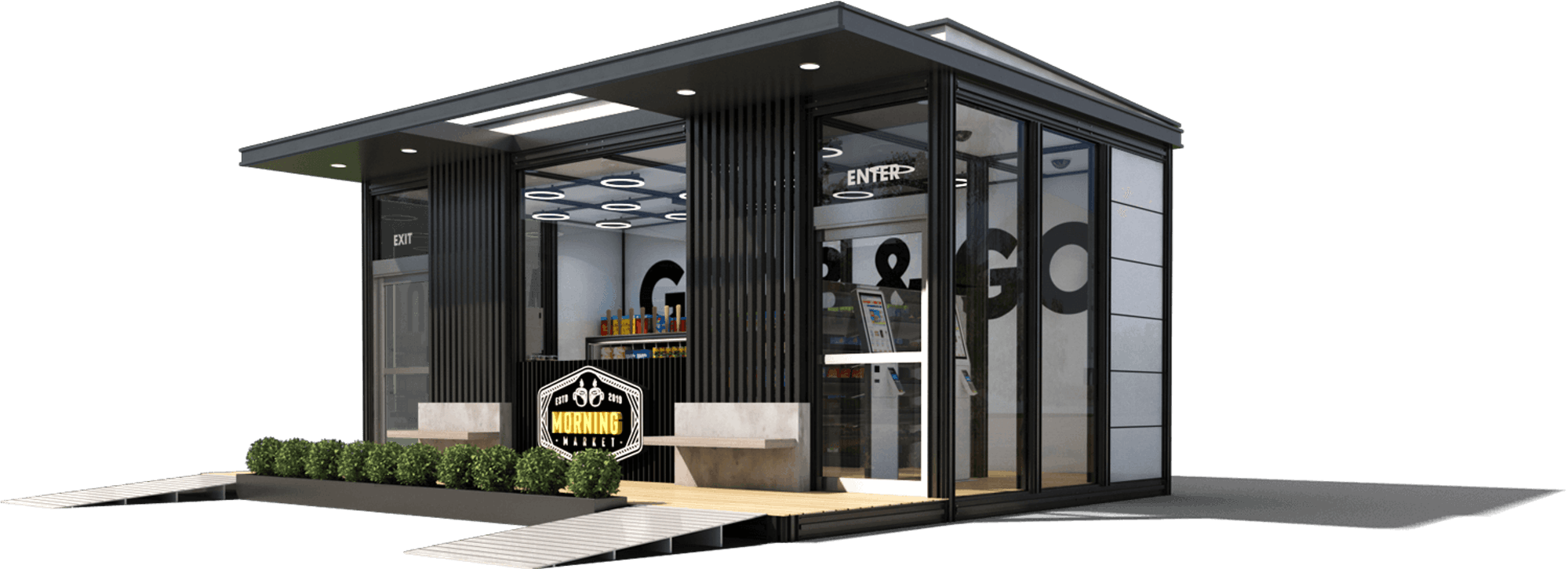As cutting-edge technology infiltrates the retail sector, startups and big players are exploring whether it can help alleviate some of shoppers’ most hated pet peeves, especially when it comes to completing a purchase. Innovations to improve both front-end and back-end retail experiences have been increasing likely due to the agnostic nature of the technologies across countless retail segments; regardless of what a vendor is selling, the pain points are largely similar when it comes to operations and execution.
So far, consumers are largely here for the idea. Nearly three-quarters of consumers feel that technologies that can reduce checkout time are valuable to them, according to recent A.T. Kearney research.
San Diego-based Accel Robotics recently raised a $30 million Series A led by SoftBank Group for its self-described grab-and-go, checkout-free technology.
“We originally started out as a robotics company for the first year and a half and migrated over to cashierless checkout about three years ago,” Brandon Maseda, co-founder and CEO of Accel Robotics tells AFN. “We’ve signed key partnerships along the way and worked with some category-leading retailers and brands. We’ve been in contact with SoftBank for a while; always liked the team.”
Maseda can’t reveal his retail partners just yet, but details may be coming soon in the New Year.
So far, Accel Robotics technology is being used in North America and Japan in a variety of retail segments including grocery, convenience, quick-service restaurants, and drugstores. The new funding will help Accel Robotics expand worldwide through operational growth, increased manufacturing capacity, and streamlining its expanding deployment pipeline.
Using camera-based AI and computer vision, the system enables shoppers to select items and leave the store without completing any formal checkout process. A receipt is sent to the shopper through text message or app notification. To avoid privacy concerns, the technology does not use any type of facial recognition to figure out who’s doing the shopping. The company has adopted a ‘privacy-first’ mantra to mitigate the inevitable concerns that consumers have about being watched by countless cameras.
“Giving the consumer choice and control over the data is key and an important aspect for this technology,” Maseda adds.
He credits some of the startups’ success-to-date to participating in two accelerator programs: Texas-based RevTech Ventures and San Diego-based EvoNexus accelerators. Smart checkout faces different challenges compared to other segments. It’s not as easy for the computer to recognize loose produce items compared to packaged goods with labels designed to stand out and catch a shopper’s eye, he notes.
“RevTech was great. We got a lot of early mentorship from some experienced retail leaders and understanding around how tech purchases are made in those environments. EvoNexus is where we were introduced to some of our early funding partners. We got a lot of good experience about the investment process and how to build a company around this type of technology. Both were great for us and needed at the time.”
The checkout-free technology space will likely see more entrants as investors continue to doll out large rounds for the innovations. Some sources estimate that the smart checkout space will process over $45 billion in transactions for retailers by 2023. Major retailers like Ahold Delhaize, are eager to get their hands on a better checkout experience as well as a few stadiums.
Earlier this year, Trigo Vision raised a $22 million Series A round for its similar service. So far, most purveyors appear to use similar technology to aid a checkout-free experience, which leads to the key question of how existing and forthcoming startups will differentiate and capture market share. Trigo’s CEO Ran Peled told AFN that its technology will be the first to scale globally, but only time will tell. And like Accel, Trigo’s Series A is being deployed almost exclusively to facilitate expansion.
Grabango is another recently-funded player in the space, announcing an oversubscribed $12 million Series A in January for its checkout-free technology featuring a fault-tolerant, edge computing network that allegedly processes millions of simultaneous transactions. It claims to offer something slightly different from the pack, which has so far focused on small scale offerings for standalone locations according to its assessment. It describes its tool as an “industrial-strength solution.”
There’s also Zippin, Caper, DeepMagic, Skip, V7 and Standard Cognition. Wholesale retailer Sam’s Club and convenience store chain 7-11 are also working on in-house innovations.
And looming over each startup entering the space is Amazon, which has dabbled with checkout-free concepts like Amazon Go. The retail giant is reportedly developing a large-scale version of the small-format concepts piloted in San Francisco and other regions. With a global footprint and the ability to leverage its existing connections to consumers through its Prime membership service, Amazon may be the one to watch in this race. Of course, that includes seeing whether it can navigate the challenges of scaling checkout-free technology to a larger footprint featuring exponentially more products for the system to learn and more foot traffic to monitor.
“We are focused primarily on developing the best experience for retailers, franchise owners, and brands while offering a new store experience. We are thinking about where can tech enable new types of commerce like blending online and physical together in different environments and getting close to where consumers live, work, travel, and play?” Maseda explains. “Imagine someone ordering a set of groceries online for pick-up in-store and wanting to add additional items to their basket. Our technology can enable that.”





